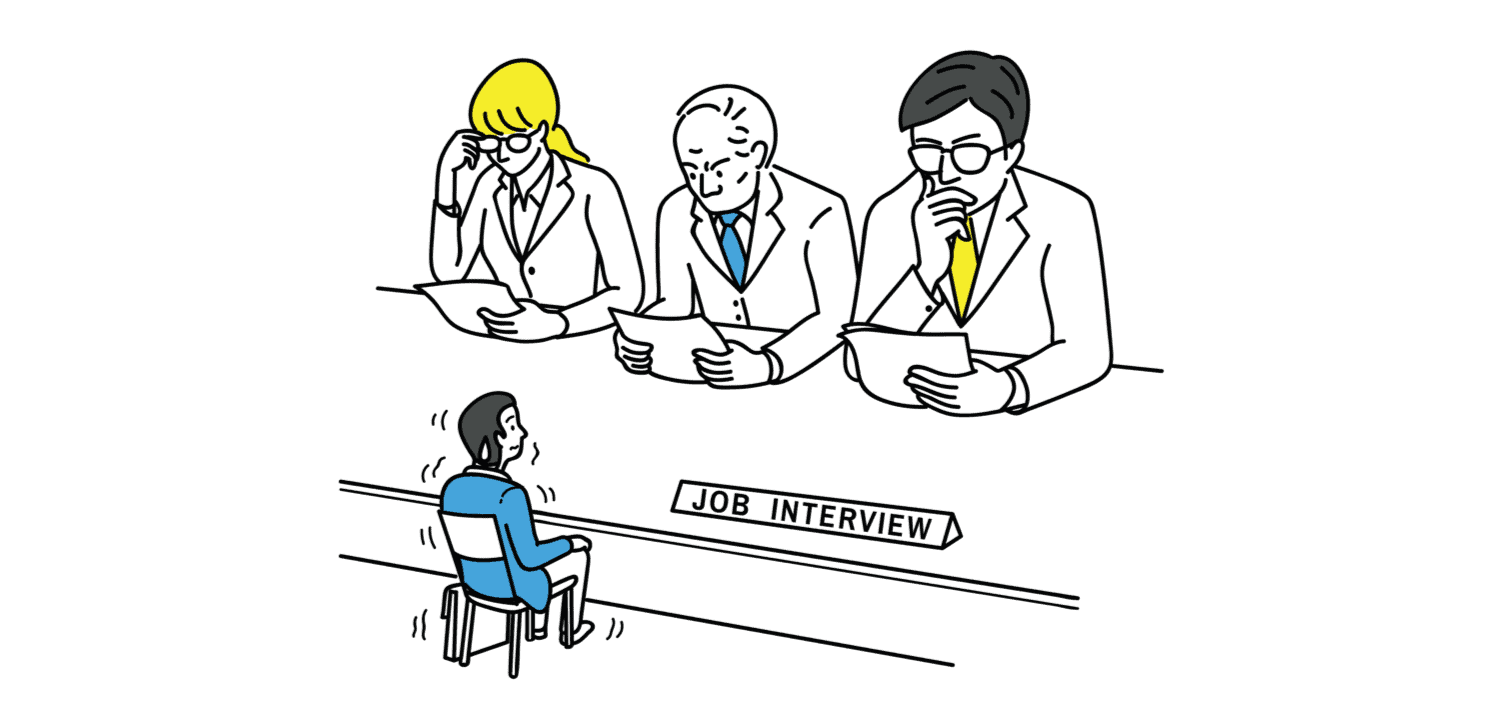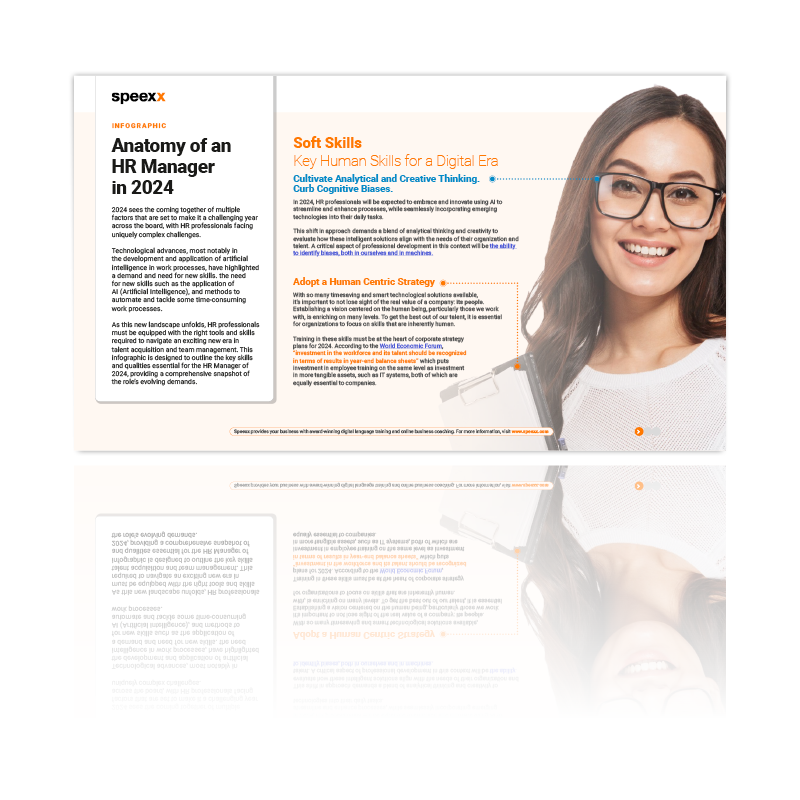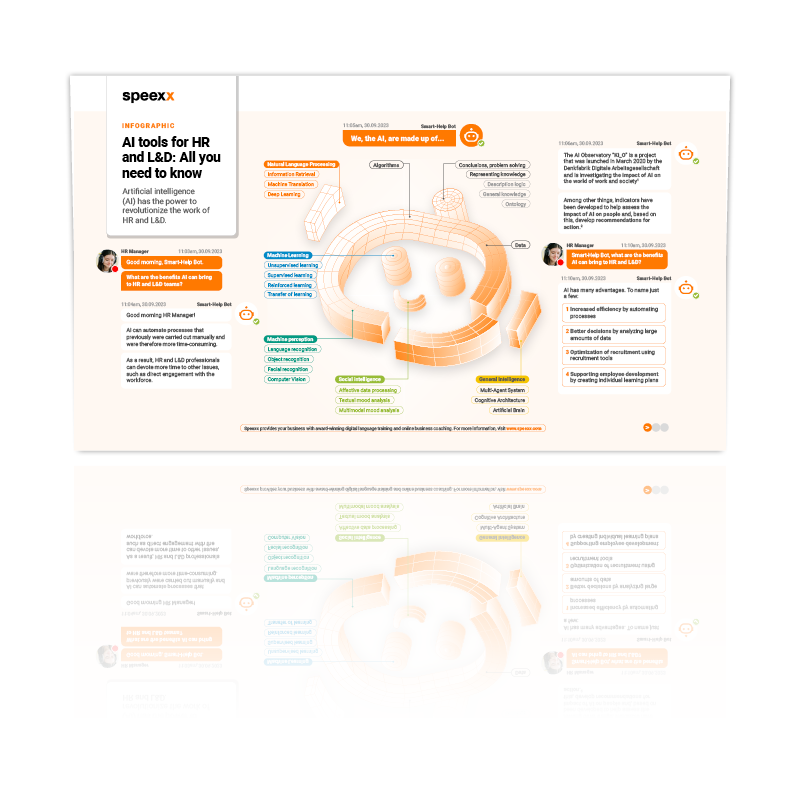Affrontare un colloquio di lavoro, già di per sé un evento che genera stress e ansia, può diventare un’impresa ancora più ardua se la lingua richiesta è l’inglese. La paura di non comprendere appieno le domande, di non riuscire ad esprimersi correttamente o di non essere all’altezza del livello linguistico richiesto, può rappresentare un ostacolo significativo per molti candidati.
Tuttavia, con la giusta preparazione e il giusto atteggiamento mentale, è possibile superare queste sfide e conquistare il successo. Prima di addentrarci nelle domande più comuni che vengono fatte in occasione di colloquio di lavoro in inglese, ecco alcuni consigli utili per affrontarlo al meglio:

Esercitarsi con l’inglese conversazionale:
Oltre a preparare le risposte alle domande frequenti, è fondamentale esercitarsi a parlare inglese in modo fluido e naturale. Questo può essere fatto attraverso conversazioni con madrelingua inglese, online o di persona, oppure seguendo corsi di conversazione inglese specifici per i colloqui di lavoro.
Essere sicuri di sé e dimostrare entusiasmo:
Un atteggiamento positivo e sicuro di sé è fondamentale per fare colpo durante un colloquio di lavoro in inglese. Dimostrare entusiasmo per l’opportunità e la propria candidatura trasmetterà al datore di lavoro la tua motivazione e il tuo interesse per l’azienda.
Non aver paura di commettere errori:
Tutti commettono errori quando parlano una lingua straniera. L’importante è non farsi prendere dal panico e continuare a parlare. Un errore non pregiudicherà necessariamente le tue possibilità di ottenere il lavoro, soprattutto se saprai riconoscerlo e correggerlo con disinvoltura.
Formulare domande coerenti con la posizione e la mission aziendale:
Al termine del colloquio, ti verrà spesso chiesto se hai delle domande. Preparare in anticipo alcune domande sui dettagli della posizione, sull’azienda e sul futuro del team dimostrerà il tuo interesse e la tua proattività.
1. Why did you apply for this job? (Perché ha fatto domanda per questo lavoro?)
- I want to take on more responsibility…
- I applied for this position because it’s exactly what I was looking for and because I think I can bring so much value to the company with my knowledge, skills and experience
2. Tell us about yourself (Ci parli di lei)
- I am a results-oriented [inserisci la tua professione] with [inserisci il numero] years of experience in the [inserisci il tuo settore] industry. I have a strong track record of [inserisci i tuoi successi]. I am also a highly [inserisci le tue competenze] individual with a proven ability to [inserisci le le tue capacità]. I am confident that I have the skills and experience that you are looking for in a [inserisci il titolo di lavoro].”

Dalle relazioni con i dipendenti all’adozione e all’uso etico dell’intelligenza artificiale, analizziamo le competenze di cui necessitano i responsabili delle risorse umane.
3. Why did you leave your last job? (Come mai ha lasciato il suo precedente lavoro?)
- I revaluated my career goals and decided a change was needed.
- I had been with the organization for a number of years and wanted to experience a new environment to continue growing.
- I left for an opportunity to advance my career.
- I was no longer finding the work fulfilling or enjoying my work as much.
4. Tell me about your education (Ci parli della sua istruzione)
- I attended the University of …
- I’ve just graduated from the University of …
5. What do you know about our organization? (Cosa sa della nostra azienda?)
- Your company has proven to be…..
- The company is famous for…..

6. Why should we hire you? (Perché dovremmo assumere lei?)
- You should hire me because I have the skills and experience that you are looking for. I am a highly [inserisci le tue competenze] individual with a proven ability to [inserisci le tue capacità]. I am also a [inserisci i tuoi tratti positivi] individual who is a team player and a quick learner. I am confident that I can make a significant contribution to your company.
7. What are your strengths? (Quali sono i suoi punti forti?)
- I’ve always been a great team player
- I believe my strongest trait is my attention to details
- I’m very good at multitasking/ at problem solving
- I pay close attention to my customer’s needs
- I am an excellent communicator
- I have very good time management skills
8. What are your weaknesses? (Quali sono i suoi punti deboli?)
- I always try to solve my own problems instead of asking a colleague who might know the answer.
- Sometimes I have trouble delegating duties to others.
- I become nervous when ….

L’intelligenza artificiale ha un enorme potenziale e potrebbe rivoluzionare il mondo del lavoro in ambito HR e formazione. L’utilizzo sapiente di queste nuove tecnologie apre grandi opportunità. Ma come può l’IA supportare questo gli HR?
9. What are your career goals? (Quali sono i suoi obiettivi professionali?)
- My career goal is to [inserisci il tuo obiettivo professionale a lungo termine]. I believe that this position would be a great opportunity for me to learn and grow and to develop the skills that I need to achieve my goal. I am also interested in [inserisci obiettivi specifici per la posizione] within this company. I am confident that I have the skills and experience that it takes to be successful in this role and to make a significant contribution to your company.
10. What are your salary expectations? (Quali sono le sue aspettative salariali?)
- My salary expectations are in the range of [specifica il range di stipendio che ti aspetti]. I am based on my skills and experience, as well as the market rate for similar positions in this area. I am also confident that I can bring value to your company that is worth more than my base salary.

11. Do you have any questions for us? (Ha domande?)
- How soon do you expect to make a decision?
- Do you have a training and development program?
Aggettivi utili da usare quando si parla di se stessi:
motivated, patient, hard-working, optimistic, cooperative, focused, reliable, organised, determined, committed, proactive, flexible, creative, down-to-earth, responsible, approachable, enthusiastic
Per concludere, se non capite una domanda, don’t panic, chiedete semplicemente di ripetere la domanda:
- I am sorry, could you kindly repeat the question for me please?
- I do apologise, I didn’t catch that, could you be so kind and repeat the question for me please?
- I am so sorry, I didn’t hear the question that well, would you mind repeating it for me please?
In bocca al lupo a tutti! Good Luck!